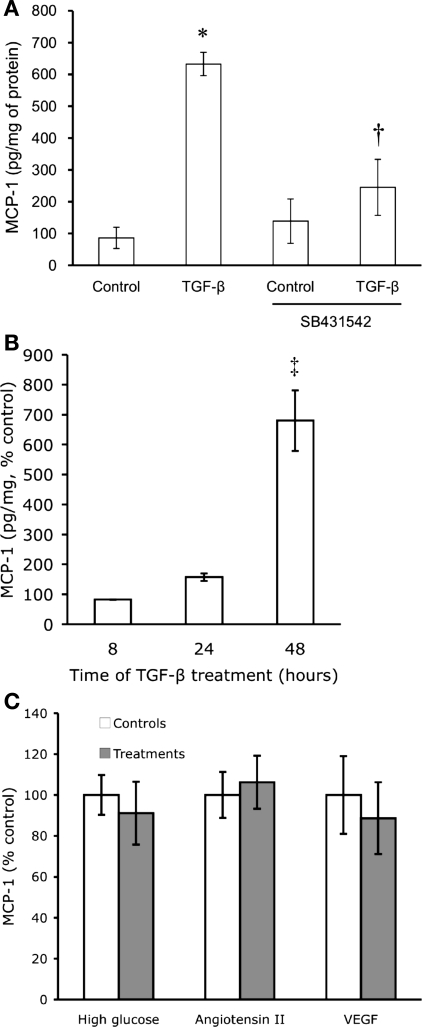Fig. 2.
TGF-β stimulates monocyte chemoattractant protein-1 (MCP-1) expression. A: cultured, differentiated mouse podocytes were treated with 2 ng/ml of recombinant transforming growth factor (TGF)-β1 for 48 h. Compared with control, TGF-β1 markedly increased MCP-1 production as measured by ELISA of cell lysate. The TGF-β-stimulated MCP-1 production was significantly blunted by concurrent treatment with 1 μM SB431542 (n = 3). *P < 0.05 vs. control. †P < 0.05 vs. TGF-β. B: TGF-β1 at 2 ng/ml progressively increased podocyte MCP-1 content over time, most evident at 48 h (n = 5) when the step-up in MCP-1 production was greatest between TGF-β and vehicle treatment (control for each time point set at 100%). ‡P < 0.01 vs. either 8 (n = 3) or 24 h (n = 5). C: high ambient glucose (25 mM) for 2 wk (n = 4), angiotensin II (10−8 M) for 6 h (n = 3), or VEGF (8 ng/ml) for 48 h (n = 3) had no significant effects on the production of MCP-1.

